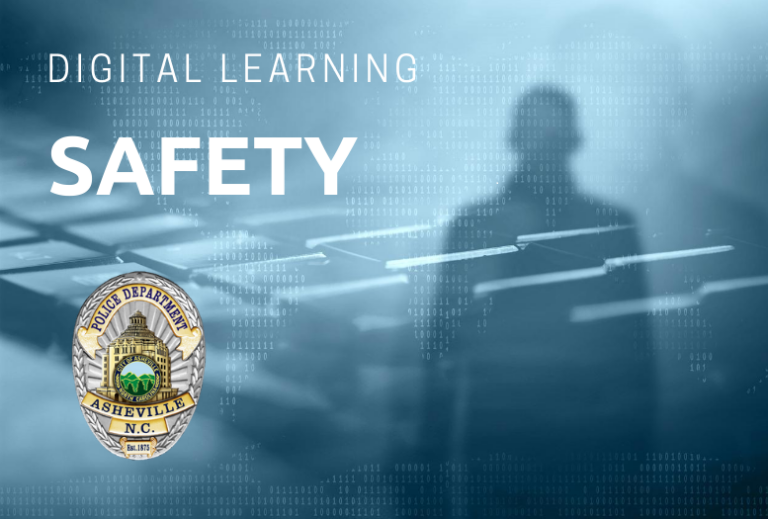As students, parents, caregivers, and teachers prepare to dive into a new school year that looks quite different from any other, the Asheville Police Department Computer Crimes Unit detectives want to offer safety reminders to students and families.
Due to the COVID-19 pandemic, social interaction opportunities for kids, teens and adults are a bit thinner than before, potentially leading to feelings of loneliness. This lack of in-person connection can open the door to increased Internet socialization. Although features like video calling and video chatting apps serve as a “next best thing” for seeing faces of friends and family, the additional screen time could mean letting guards down to threats lurking online.
“You might think all the troubles are outside your house and 90 percent of the time, things are good, but I also understand that many parents are under a lot of stress. It is important they stay vigilant and aren’t afraid to be a nosy parent,” said APD detective Tony Johnson. “A lot of times the lid gets blown off these potentially dangerous situations — people on the Internet preying on kids — because of parents who insisted on staying involved.”
Parents, guardians, caregivers and teachers can put into practice the following tips to help protect children from becoming victims of online child predators:
- Discuss Internet safety and develop an online safety plan with children before they engage in online activity. Establish clear guidelines, teach children to spot red flags and encourage children to have open communication with you.
- Supervise young children’s use of the Internet, including periodically checking their profiles and posts. Keep electronic devices in open, common areas of the home. Consider setting time limits on devices.
- Review games, apps, and social media sites before they are downloaded or used by children. Pay particular attention to apps and sites that feature end-to-end encryption (ensures only you and the person you’re communicating with can read what’s sent, and nobody in between), direct messaging, video chats, file uploads, and user anonymity, which are frequently relied upon by online child predators.
- Adjust privacy settings and use parental controls for online games, apps, social media sites, and electronic devices.
- Tell children to avoid sharing personal information, photos, and videos online in public forums or with people they do not know in real life. Explain to kids that online images posted online will live permanently on the internet.
- Be alert to potential signs of abuse, including changes in children’s use of electronic devices, attempts to conceal online activity, withdrawn behavior, angry outbursts, anxiety, and depression.
- Encourage children to tell a parent, guardian, or other trusted adult if anyone asks them to engage in sexual activity or other inappropriate behavior.
- Immediately report suspected online enticement or sexual exploitation of a child by calling 9-1-1, contacting the FBI at fbi.gov, or filing a report with the National Center for Missing & Exploited Children (NCMEC) at 1-800-843-5678 or report.cybertip.org.
